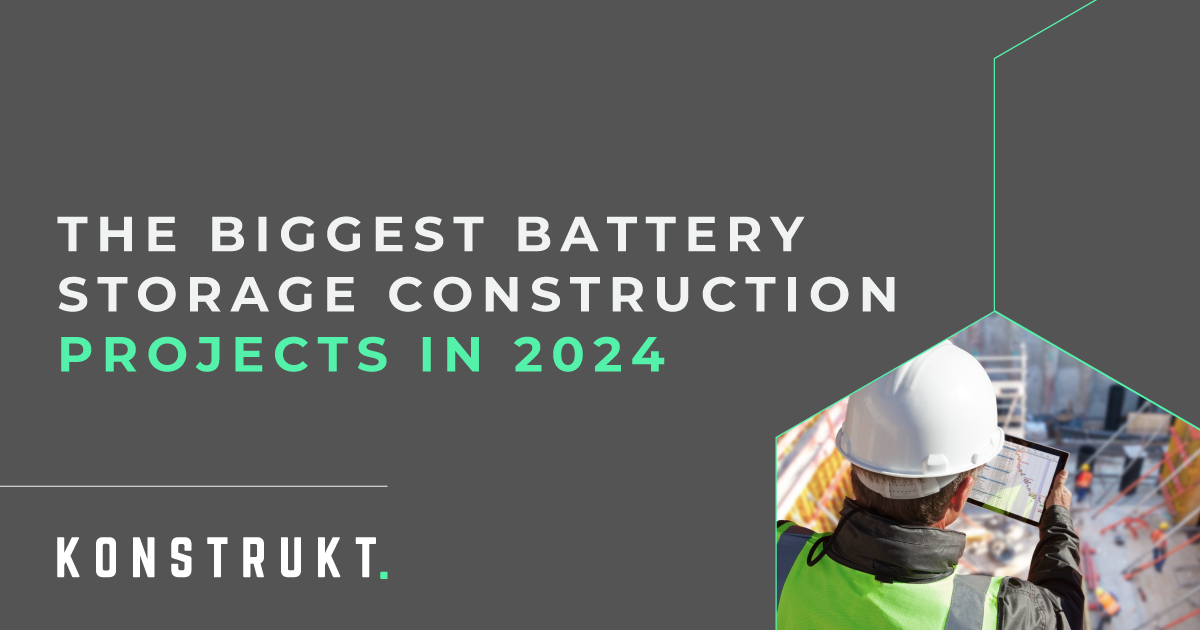Pharmaceutical construction is undergoing a growth phase, driven by global demands for innovative healthcare solutions and sustainable pharmaceutical products. This surge is accompanied by large investments in a range of facilities across the UK and Europe, leading to new job opportunities within pharmaceutical construction companies.
If you’re a white-collar construction professional looking for jobs in Europe, you may cast your eye over these pharma construction projects and perhaps get inspiration to make your next career move.
The Limerick Drug Manufacturing Facility Project – Ireland
With a €927 million investment from US pharma giant Eli Lilly, the Limerick project is expected to create an additional 1,500 jobs during its construction phase and a further 300 jobs once it’s operational.
With its significant scale and strategic focus on manufacturing active ingredients for medicines targeting Alzheimer’s, cancer and diabetes, this project will create many job opportunities for white-collar construction workers during the construction and operational phases.
Jobs in the Construction Phase (Q1 2023 – Q4 2026):
- Project Management: Opportunities for project managers to oversee the construction process, ensuring it meets timelines, budget and quality standards.
- Engineering Roles: Civil, mechanical, electrical and chemical engineers will be crucial for designing the facility’s infrastructure, ensuring it meets the specific requirements for drug manufacturing.
- Architectural and Design Services: Architects and designers specialising in industrial facilities could find roles in planning the layout and functional design of the facility.
- Quality Assurance and Compliance: Specialists in quality assurance and regulatory compliance will be needed to ensure the construction meets the stringent standards required for pharmaceutical manufacturing.
- Health, Safety, and Environmental (HSE) Managers: Professionals focused on maintaining health and safety standards on-site and ensuring environmental compliance during construction.
Post-construction and operational phase
- Facility Management: Roles managing the daily operations, including equipment and infrastructure maintenance.
- Quality Control and Assurance: Positions focused on ensuring the products meet regulatory and company standards.
- Supply Chain and Logistics Management: Professionals managing the sourcing of raw materials and the distribution of finished products.
The Stein Drug Product Fill & Finish Manufacturing Plant – Switzerland
Lonza is pouring CHF 500 million (€500m) into its flexible fill and finish facility in Stein, Switzerland. This facility will enable the end-to-end product lifecycle management of drug substances. It aims to increase manufacturing capacity and incorporate an additional fill-finish production line, ensuring a consistent offering for clinical and commercial pharmaceutical needs.
Jobs during the Construction Phase (Q1 2023 – Q4 2026)
- Project Management: Opportunities for project managers to oversee the construction phase, ensuring that the project adheres to timelines, budgets and quality standards.
- Engineering and Technical Roles: Mechanical, chemical and process engineers will be essential for designing and implementing the fill-finish production line and ensuring it integrates seamlessly with existing facilities.
- Quality Assurance and Regulatory Compliance: Specialists in this area will be vital to ensure that the construction and the resulting facility meet the stringent regulatory standards of pharmaceutical manufacturing.
- Health, Safety, and Environmental (HSE) Managers: Professionals to enforce safety protocols on the construction site and ensure environmental compliance, minimising the project’s impact on the surrounding area.
- Architects and Construction Specialists: Skilled in the construction design of pharmaceutical manufacturing facilities, focusing on cleanroom environments and the specific requirements of fill-finish operations.
Jobs in the Post-construction and Operational Phase:
- Operations Management: Roles to oversee the day-to-day running of the fill-finish line, ensuring operational efficiency and compliance with manufacturing practices.
- Quality Control and Assurance: Professionals who can conduct rigorous testing and quality assurance of pharmaceutical products at various stages of the fill-finish process
- Maintenance and Engineering: Specialists in maintaining and optimising the performance of the fill-finish equipment and supporting infrastructure.
- Supply Chain and Logistics Managers: To manage the procurement of raw materials and the distribution of finished products to markets or clinical trial sites.
More Pharma Construction Projects
Novo Norodisk – Denmark
Novo Norodisk has committed to investing 42 billion Danish kroner (€5.6 billion) from 2023, to expand its manufacturing facilities in Kalundborg, Denmark. Construction is expected to start at the end of 2025 and finalise in 2029, creating about 800 jobs.
The company announced another project in 2023, a new multi-product facility spanning 65,000m2 in Hillerød, Denmark and worth €2.1 billion.
Let’s Connect You With Pharmaceutical Construction Companies in Europe
It’s clear that the continued expansion of pharma manufacturing will create even more jobs in Europe, driving demand for a diverse range of construction skills and expertise.
This represents an exciting frontier for the pharmaceutical construction sector, which contributes to economic growth and plays a pivotal role in shaping a more sustainable future.
Contact our team today if you’re looking for your next exciting opportunity in the Pharma construction space. We can connect you with Europe’s leading pharmaceutical construction companies and set your career on an exciting trajectory.





